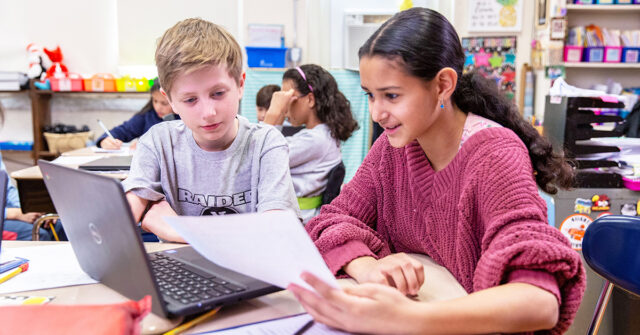
by Anna Gratz Cockerille
Starting at even the youngest ages, students are well aware of social issues. Even before they begin school, they know what is fair and unfair, what it means to take care of each other, and what it means to behave in ways that aren’t socially accepted. Through the elementary school years, students begin to understand the power of social groups as they feel the effects of bullying and cliques.
In middle school and high school, students begin to care about social issues that exist outside of their school and home environments. Poverty, race, gender, and class become topics of conversation. Students also begin to understand that they can take a stand on issues and that their voices matter.
Teaching social justice is a way to provide students with language and frames for examining their own lives for issues that matter, and having an opinion about them. It is a way to teach students to think critically and deeply about what is happening around them, rather than accepting the status quo. It is a way to teach students to live wide-awake lives, to become the kind of people who stand up for others; choose a side because they feel it’s right, not because it’s popular; participate in the democratic process; and fight for justice and truth.
Another beautiful thing about teaching social justice is that it is often a way for students to seamlessly integrate reading and writing skills in authentic ways. They read about issues they care about, talk about them, and write about them in virtuous cycles of growth. Many Units of Study from Lucy Calkins and colleagues channel students to explore social issues. These include reading units, such as the third grade unit Changing the World: Persuasive Speeches, Petitions, and Editorials by Lucy Calkins and Kelly Boland Hohne, and writing units, such as the eighth grade unit Position Papers: Research and Argument, by Mary Ehrenworth, Cornelius Minor, and Lucy Calkins.
Emily Strang Campbell and Shanna Schwartz recently led a Twitter chat on building a toolkit for social justice. Below, see the Storify from the chat with the TCRWP community to get a wealth of ideas on texts, digital resources, conversation starters, writing ideas, and other tools for infusing your classroom with social justice. Whether you plan on teaching a unit on social issues, or you are looking for quick ways to up the ante on students’ thinking, you’re sure to leave the chat energized and with plenty of teaching fuel.
Each Wednesday night at 7:30pm eastern, The Teacher's College Reading and Writing Project hosts a Twitter chat using the hashtag #TCRWP.
Not on Twitter? Take Heinemann’s free Twitter for Educators course here.
 Anna Gratz Cockerille, Coauthor of Bringing History to Life (Grade 4) in the Units of Study for Teaching Writing Series.
Anna Gratz Cockerille, Coauthor of Bringing History to Life (Grade 4) in the Units of Study for Teaching Writing Series.
Anna was a teacher and a literacy coach in New York City and in Sydney, Australia, and later became a Staff Developer and Writer at TCRWP. She served as an adjunct instructor in the Literacy Specialist Program at Teachers College, and taught at several TCRWP institutes, including the content literacy institute, where she helped participants bring strong literacy instruction into social studies classrooms. Anna also has been a researcher for Lucy Calkins, contributing especially to Pathways to the Common Core: Accelerating Achievement (Heinemann 2012), and Navigating Nonfiction in the Units of Study for Teaching Reading, Grades 3–5 series (Heinemann 2010). Most recently, Anna served as an editor for the Units of Study for Teaching Reading, K–5 series.


